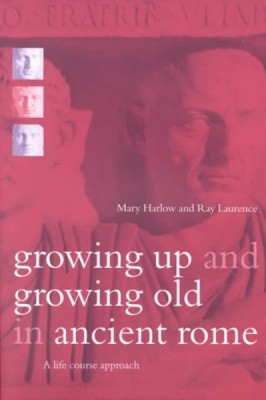| Growing Up and Growing Old in Ancient Rome: A Life Course Approach Contributor(s): Harlow, Mary (Author), Laurence, Ray (Author) |
|
 |
ISBN: 0415202019 ISBN-13: 9780415202015 Publisher: Routledge OUR PRICE: $44.60 Product Type: Paperback - Other Formats Published: December 2001 Annotation: Throughout history, every culture has had its own ideas on what growing up and growing old. This volume is the first to highlight the role of age in determining behaviour, and expectations of behaviour, across the life span of an inhabitant of ancient Rome. Drawing on developments in the social sciences, as well as ancient evidence, the authors focus on the period c.200BC - AD200, looking at childhood, the transition to adulthood, maturity, and old age. They explore how both the individual and society were involved in, and reacted to, these different stages. |
| Additional Information |
| BISAC Categories: - Psychology | Developmental - General - History | Ancient - Rome |
| Dewey: 305.209 |
| LCCN: 2001040368 |
| Lexile Measure: 1310 |
| Physical Information: 0.39" H x 6.32" W x 9.2" (0.73 lbs) 192 pages |
| Themes: - Theometrics - Academic - Chronological Period - Ancient (To 499 A.D.) - Cultural Region - Italy |
| Descriptions, Reviews, Etc. |
| Publisher Description: Throughout history, every culture has had its own ideas on what growing up and growing old means, with variations between chronological, biological and social ageing, and with different emphases on the critical stages and transitions from birth to death. This volume is the first to highlight the role of age in determining behaviour, and expectations of behaviour, across the life span of an inhabitant of ancient Rome. Drawing on developments in the social sciences, as well as ancient evidence, the authors focus on the period c.200BC - AD200, looking at childhood, the transition to adulthood, maturity, and old age. They explore how both the individual and society were involved in, and reacted to, these different stages, in terms of gender, wealth and status, and personal choice and empowerment. |